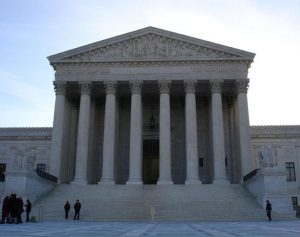The Florida Supreme Court just raised the bar on allowable scientific evidence with its nixing of the longstanding Frye test in favor of the more rigid Daubert, the latter followed by federal courts as well as those in most other states. This will mean additional hurdles, expense and time delays for plaintiffs in Florida injury lawsuits – particularly in cases of medical malpractice and product liability, which either require and/or rely heavily on expert witness testimony.
Last month’s divided ruling of In re: Amendments to the Florida Evidence Code, came as something of a shock to courts and South Florida injury attorneys, given that the state high court had ruled on this very matter in October – and came down firmly on the other side. Justices in the majority cited serious constitutional concerns and procedural issues.
Now, the majority has ruled those “grave concerns” for constitutional rights and procedure were “unfounded.”
Give that legal precedent is inherently slow by design and this was an abrupt reversal of the court’s own ruling took many by surprise. Although these evidence standards are applicable to expert witnesses for both sides, the truth is that because prosecutors/plaintiffs bear the proof burden, it is the defense that benefits most from Daubert.
Why Did Florida Flip-Flop on Frye?
For 70 years starting in 1923, the Frye test was considered the national standard for filtering “junk science” from submitted evidence. Precedent began with the U.S. Supreme Court’s ruling in Frye v. U.S, and was pretty much universal by the 1970s.
The Frye precedent was set with the U.S. Supreme Court’s ruling in Frye v. U.S. as a means to prevent the admission of “junk science.” (At issue in that criminal case was the lower court’s refusal to allow the defendant to help prove his innocence through what was basically an early version of the lie detector test.) The court held that in order for scientific evidence/expert witness testimony to be admitted, it had to be sufficiently based on established science and generally accepted among relevant scientific communities.
But in the ensuing decades, as technology, medicine and other sciences advanced, many began to argue the Frye test was far too simplistic.
In 1993, the U.S. Supreme Court weighed a case of alleged product liability against a drug company whose medication reportedly caused severe birth defects in two siblings. That case was Daubert v. Merrell Dow Pharmaceuticals, Inc.. The high court offered a more intensive, three-part analysis for determining admissibility of scientific evidence, establishing the judge as the gatekeeper and asking whether the evidence/testimony is backed by a breadth of objective fact, whether it’s relevant and uses scientific methods and principles and whether these recognized methods were appropriately applied to the facts of the case.
Soon after, the court approved Rule 702 of the Federal Rules of Evidence, which made Daubert the new standard in both criminal and injury litigation, and many (but not all) states fell in line soon thereafter. Florida, along with about a dozen others, stuck with the more lenient standard.
Twenty years after Daubert was established, state lawmakers in Florida passed (and then-governor signed) a bill amending the Florida Evidence Code used by state courts to adopt Daubert. This caused confusion when the Florida Supreme court deemed this an overreach by the executive and legislative branches. Citing constitutional concerns, they affirmed Frye as the standard for expert witness vetting in Florida and did so again just last year.
The change comes about almost certainly because the political makeup of the court appointments by Gov. Ron DeSantis, tipping the court’s ideology conservative and prompting a second look at their most recent case, DeLisle v. Crane Co., wherein the court held the previous “grave constitutional constitutional concerns” cited by the now-retired justices were “unfounded.”
DeLisle v. Crane Co., holding in October the case didn’t present proper controversy for them to consider Daubert’s
Why Civil Injury Case Lawyers Loathe Daubert
Important to note: More lenient doesn’t mean less effective. In fact, there are many Fort Lauderdale personal injury lawyers – especially those practicing medical malpractice, product liability and wrongful death – who argue Daubert is the least effective of the two. It is time-consuming, requires a mini-trial before the trial – sometimes immediately preceding the trial.
Daubert cases tend to experience more delays, consume more resources and are harder to win. If the defense raises a Daubert challenge, most plaintiff attorneys won’t try to wing it with an expert on a conference call during the evidentiary hearing. They’ll want them present. These challenges also require additional preparation time for the witness, an expenses passed on the client.
Even when a case isn’t likely to go to trial, concern of a successful Daubert defense challenge might compel some lawyers into settling a case for less than it’s worth.
If you are seriously injured in Florida, it is imperative now more than ever to carefully choose an attorney with the experience and resources to successfully fight for your rights.
Call Fort Lauderdale Injury Attorney Richard Ansara at (954) 761-4011. Serving Broward, Miami-Dade and Palm Beach counties.
Additional Resources:
In re: Amendments to the Florida Evidence Code, May 15, 2019, U.S. Supreme Court
 Broward Injury Lawyer Blog
Broward Injury Lawyer Blog



